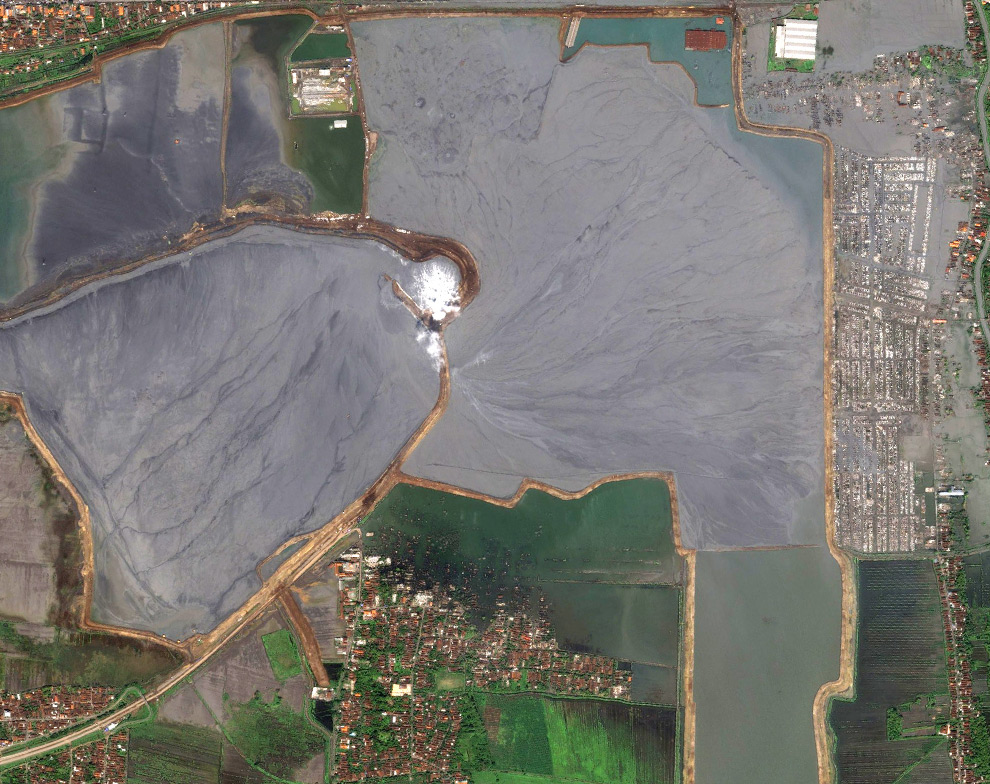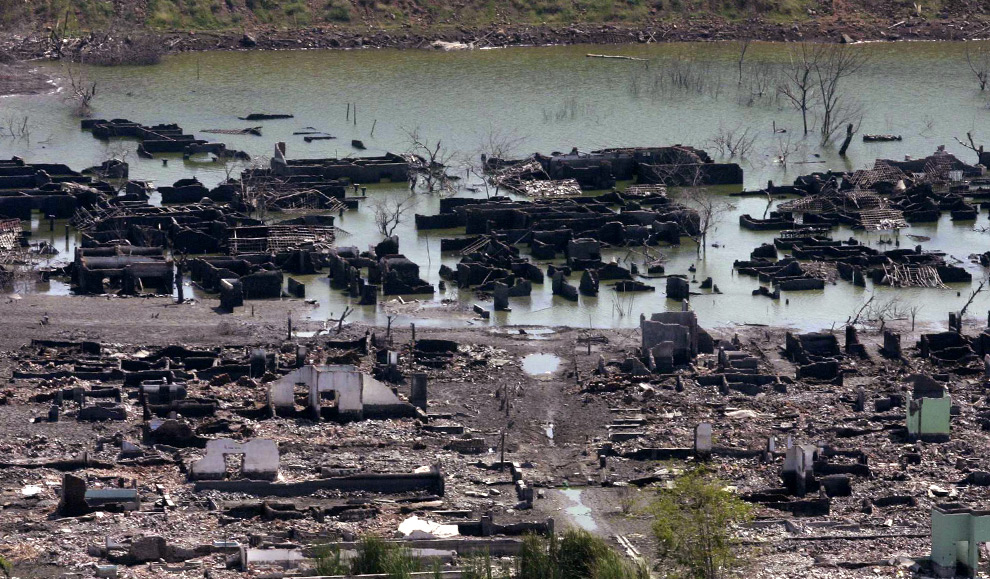wolfigor
Emperor
I don't know if was discussed here already but it's an interesting event I wasn't aware of until recently.

location in googlemap: http://goo.gl/maps/95oRg
This volcano did not exists before May 28, 2006 and it's now considered a man made Volcano (even if the company who made the drilling objects to it and refuse liability for the destruction of a village and displacement of thousands of people).
From wikipedia (http://en.wikipedia.org/wiki/Sidoarjo_mud_flow):
A big dike has been built to contain the outflow:



This is the world's largest mud volcano, has left 13,000 families homeless, and it is likely to continue erupting for another 26 years.
As usual the drilling company refuse to pay damages to the people that have been effected by their operations.
This is a sober reminder that things can go horribly wrong when drilling near places where people live (see fracking).

location in googlemap: http://goo.gl/maps/95oRg
This volcano did not exists before May 28, 2006 and it's now considered a man made Volcano (even if the company who made the drilling objects to it and refuse liability for the destruction of a village and displacement of thousands of people).
From wikipedia (http://en.wikipedia.org/wiki/Sidoarjo_mud_flow):
The Sidoarjo mud flow or Lapindo mud (informally abbreviated as Lusi, a contraction of Lumpur Sidoarjo wherein lumpur is the Indonesian word for mud) is the result of an erupting mud volcano in the subdistrict of Porong, Sidoarjo in East Java, Indonesia that has been in eruption since May 2006. It is the biggest mud volcano in the world, created by the blowout of a natural gas well drilled by PT Lapindo Brantas, although company officials contend it was caused by a distant earthquake. In August 2012, Geologists definitively stated that the Sidoarjo mudflow was caused by drilling operation misconduct which only used a quarter of the height of drilling wallpipe and was not caused by an earthquake 275 kilometers away. This was stated by a Constitutional Court concerned with the National Budget to bear a part of the disaster fund
A big dike has been built to contain the outflow:



This is the world's largest mud volcano, has left 13,000 families homeless, and it is likely to continue erupting for another 26 years.
As usual the drilling company refuse to pay damages to the people that have been effected by their operations.
This is a sober reminder that things can go horribly wrong when drilling near places where people live (see fracking).


 You know me.
You know me.